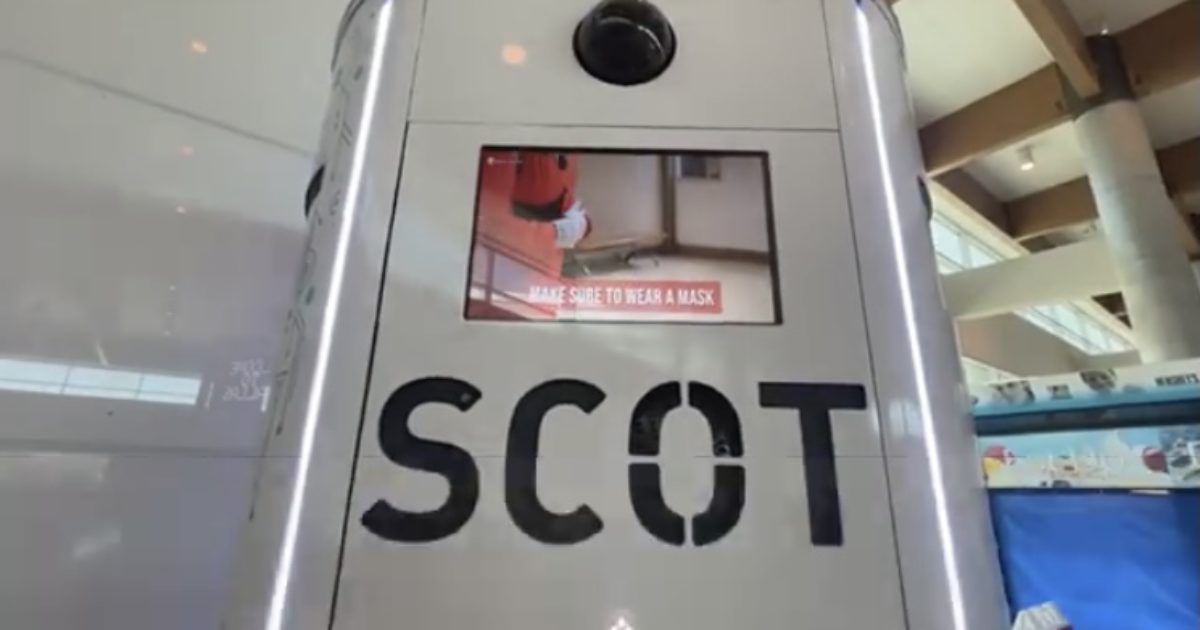Behold, the New World Order!
Or, a gigantic waste of taxpayer dollars.
Dallas Love Field Airport unveiled a 7-foot robot that watches for unmasked passengers and will notify law enforcement of potential crimes.
Nothing dystopian about that, right?
The robot, dubbed “SCOT,” was installed last month to “determine if they are capable of efficiently supplementing current airport operations,” said Love Field spokeswoman Lauren Rounds, the Dallas Morning News.
SCOT can detect if a person is wearing a face mask and can detect behavior of passengers based on what they are wearing.
The robot can issue warnings and call the police.
Dallas Morning News reported:
Yes, those 7-foot-tall machines at Dallas Love Field are watching you. They want to make sure you’re wearing a mask if you’re boarding a flight or not parking too long at the curb if you’re picking up a returning traveler.
Love Field is testing out two Security Control Observation Towers at the airport, one near baggage claim and another near security checkpoints, to figure out whether robotic assistants can both help customers get around and warn passengers who are breaking rules. The robots can also airport security and operations in case more help is needed.
While not quite Robocop, the machines, nicknamed SCOT, were installed a month ago to “determine if they are capable of efficiently supplementing current airport operations,” said Love Field spokeswoman Lauren Rounds.
The robots look like many other kiosks at the airport with a touch screen with wayfinding information, maps of parking garages and directions to ride-hailing and shuttle pickup. But SCOT is much smarter, capable of detecting what people are wearing and even whether they’ve got on a face mask.
Airports have been at the forefront of technology, including facial recognition and other biometrics, for years, a trend that worries privacy advocates who say there are few, if any, laws or guidelines about how emerging technology should be used. Amazon took criticism in 2019 after testing its Rekognition technology with police departments before deciding to ban law enforcement from using it two years later.



Join the conversation!
Please share your thoughts about this article below. We value your opinions, and would love to see you add to the discussion!